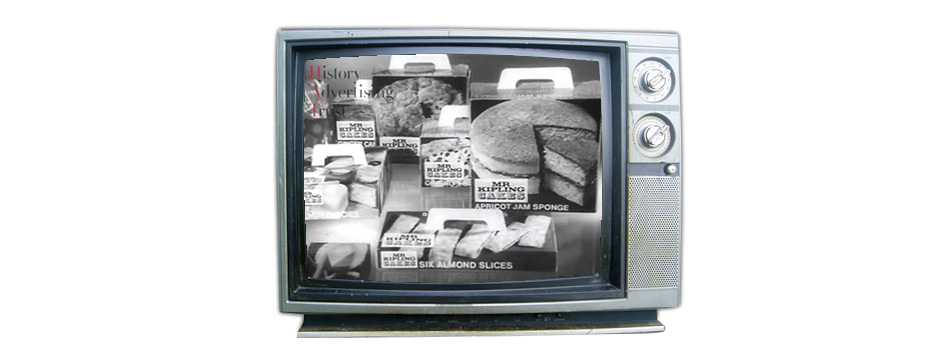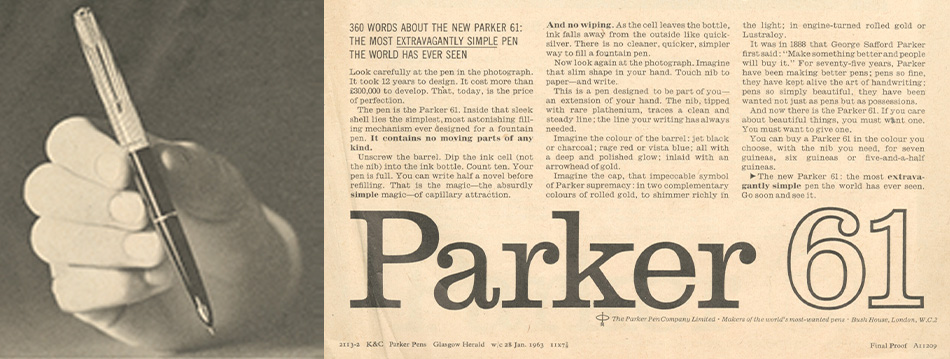We unearthed the company psychologist’s verdict on a “potentially very good recruit”. Plus friends and colleagues on Jeremy as leader, mentor and advisor.
From the July 1954 report on trainee copywriter Jeremy Bullmore by Basil Clarke, the company psychologist:
“Bullmore walks along the edge of some of the pigeonholes rather than falling neatly into them. He has not grown up under any family influence towards a profession – unless his present interest is hereditarily determined by the fact that his military father once started a small advertising agency! … Clearly the kind of writing he finds easiest is very relevant to copy and commercial script writing … He has a good social adjustment and a lively mind behind a neat conventional appearance … There is a touch of tenseness which shows in the ink blot test, and in a functional blindness to ‘technical-looking’ things. (The wireless course he topped in the army was not very technical in this sense.) He has a sharp, though not a snarling, sense of humour. Bullmore has a great deal to recommend him – patent ability in a relevant genre, keenness, an independent critical sense (which he can apply to himself), a degree of perseverance, and a personable manner. He seems to be potentially a very good recruit.”
From a profile by John Treasure for the International Journal of Advertising in 1988 when Jeremy retired as Chairman of JWT London:
“There is no doubt (in my mind at least) that in the late 1960s JWT London became the true centre of the JWT world. Its business grew mightily, its creative work was outstanding, and it was constantly producing books, lectures, presentations and leaflets about advertising which were substantially better than anything being produced by any other agency in the world. Jeremy was certainly one of the major factors in achieving this leadership, if not the major factor. He was admired and feared in almost equal proportions by Thompson people all around the world … Jeremy has never claimed to be a brilliant advertising man, quite the contrary. He has simply been one, and that is why everyone thinks of him in this way. There is no substitute for product quality in the end.”
Extract from a speech given at Jeremy’s Mackintosh Medal dinner by Amelia Torode, strategist and past WPP Marketing Fellow.
“It was in my first year of the Fellowship that I became fascinated by this thing called the internet and it was thanks to Jeremy that this fascination began. “Just find something that you do that no-one else knows” JB had advised me during one of our early mentor sessions. I looked around at the folks at 40 Berkeley Square and I “taught myself” the web as the only other people who seemed interested were in the IT department. Coming up to the end of my year at JWT I was again with Jeremy to try and work out where to go to next to learn more about this new area. I was full of questions - which agencies, which countries, which people? Having listened to my digital babbling, JB remarked: “You’ve always got me here for advice, but just remember that no-one cares about your own career as much as you do.” I remember feeling a bit put out, as though it was a kind of rebuke, but it was the best careers advice I had ever been given. The knowledge that the only person who has control over your own professional destiny is yourself was a great wake up call. The second piece of advice that has stuck was to another Fellow, but it’s advice that I have since taken to heart. The Fellow in question had recently graduated from the Fellowship and was looking for some guidance from Jeremy. She outlined several big-sounding job offers that she had on the table and asked for his opinion. JB listened quietly and then gave the following advice: “When faced with several different opportunities always take the one that is most terrifying. At the very least you’ll learn what humility tastes like.” Finally, a tale told to me by a Fellow here tonight: “Early on I went on one of those university milk round WPP presentations, it was Oxford, I think. JB came along. All the Fellows, in our varying degrees of cockiness, were intending to busk our parts of the presentation. Jeremy however came with a typed speech that he had written specifically for the occasion. As respectful of the undergraduate audience as he would have been a room full of CEOs. He delivered it in his own quiet way, and there was compete silence in the room as everyone leaned forward to listen. It was a lovely example of JB being “humble” - even though of all people, he needn’t be.”
Three lessons for professional development - self-reliance, bravery and humility. Three pretty good rules to live by I think.”
As Advertising Association Chairman from 1981-87 Jeremy helped to develop the UK self-regulatory system and worked with many past AA chairmen. Their testament to his beliefs and values are recorded here:
Mark Lund: “Jeremy is, of course, about the nearest thing to a genuine renaissance man advertising has. His wisdom is rooted in the timeless truths of human psychology and social behaviour but knows and respects the rapid evolution of comms and technology.”
David Kershaw: “While many strut their stuff over others, the joy of Jeremy is that he is never shy of commentating on his own ridiculousness and being far more generous about others than himself. So when people trot out the cliché that nice people don’t succeed, just say: Jeremy Bullmore.”
Mark Read now runs WPP as CEO and has been instrumental in setting up this archive. On Jeremy as WPP director and advisory board member, he says:






